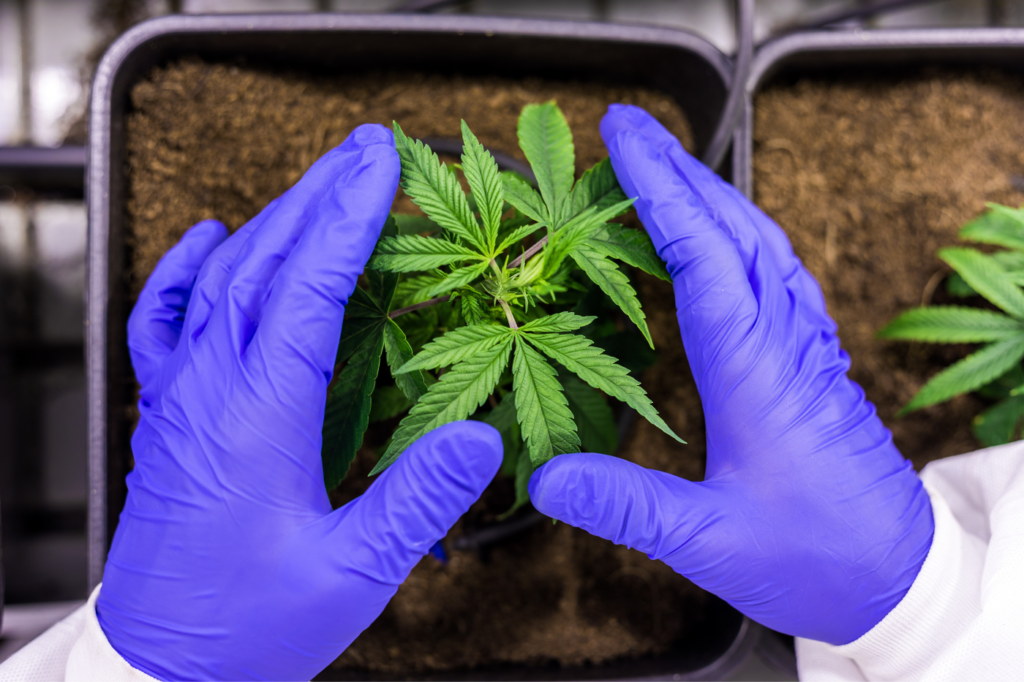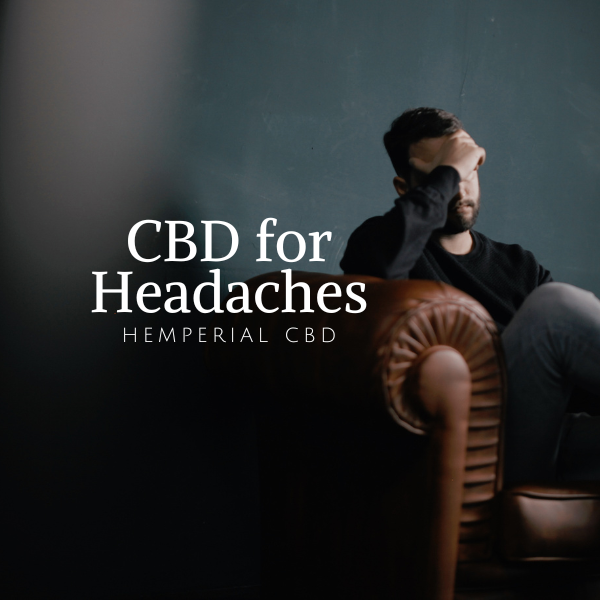Understanding Headaches
Headaches are one of the most common health complaints, affecting nearly everyone at some point in their lives. They can manifest in various forms, each characterized by their symptoms, frequency, duration, and causes. Types of headaches include tension headaches, the most common form usually caused by stress and muscle strain; migraines, which are severe headaches often accompanied by nausea and light sensitivity; cluster headaches, which are excruciatingly painful and occur in cyclical patterns or “clusters”; and sinus headaches, caused by inflammation in the sinuses. Can CBD for headaches be a solution?
The cause of headaches can vary widely, from lifestyle factors such as stress, poor posture, and dehydration, to more serious conditions like high blood pressure or brain tumors. For some people, headaches can be a chronic and debilitating issue, severely impacting their quality of life.
In recent years, CBD has emerged as a potential remedy for various health issues, including headaches. As part of the cannabis plant, CBD (Cannabidiol) has been studied for its potential in providing pain relief and reducing inflammation, two key factors that play a role in headaches. Therefore, the potential use of CBD for headaches has sparked interest among researchers and those who suffer from frequent headaches.
It’s important to note that while we delve into the potential effects and benefits of CBD for headaches, research in this area is still ongoing. The information provided in this article should not be used as a substitute for professional medical advice and guidance. Always consult with a healthcare provider before starting any new treatment regimen.
CBD – An Overview
Cannabidiol, better known as CBD, is a compound naturally occurring in the cannabis plant. Unlike tetrahydrocannabinol (THC), another compound in the plant, CBD doesn’t cause the ‘high’ typically associated with cannabis use. Instead, CBD is gaining traction in the health and wellness world for its therapeutic potential, including its potential use in managing headaches.
CBD is a type of cannabinoid, a chemical that interacts with the endocannabinoid system (ECS) in the human body. The ECS is a complex cell-signaling system that plays a critical role in maintaining body homeostasis. It’s involved in various physiological processes, including mood, appetite, sleep, immune response, and pain.
The potential benefits of CBD for headaches come from its interaction with the ECS. By interacting with the ECS’s receptors, primarily CB1 and CB2, CBD might influence the body’s pain and inflammation responses. These interactions could potentially provide relief from headache symptoms.
In the context of headaches, CBD’s potential anti-inflammatory and analgesic properties are of particular interest. For instance, CBD’s ability to influence the body’s response to pain and inflammation could potentially provide relief for those suffering from tension headaches or migraines. It’s also worth noting that stress and anxiety are common triggers for many types of headaches, and CBD is also being researched for its potential effects on anxiety and stress response.
Remember, while CBD shows promise as a potential treatment for headaches, it’s still crucial to consult with a healthcare provider before starting any new treatment regimen. The use of CBD for headaches should be based on individual health assessments and in line with existing treatment plans. The intent of this article is not to provide medical advice, but to inform about potential benefits and ongoing research in the field.

CBD and the Endocannabinoid System
The endocannabinoid system (ECS) plays a significant role in the regulation of various bodily functions, such as mood, sleep, pain perception, and immune responses. One aspect of the ECS that is particularly interesting for those studying CBD for headaches is its role in managing pain and inflammation.
The ECS consists of endocannabinoids, receptors, and enzymes. The two main types of receptors, CB1 and CB2, are found throughout the body but are most prevalent in the brain and immune system, respectively. Endocannabinoids bind to these receptors to signal the ECS to take action.
When it comes to headaches, the ECS’s role in pain management is key. Many types of headaches, including migraines and tension headaches, are associated with inflammation and pain. By interacting with the ECS, CBD could potentially influence the body’s pain response and provide relief.
CBD doesn’t bind directly to CB1 and CB2 receptors like THC. Instead, it’s thought to work indirectly, either by influencing the receptors or preventing endocannabinoids’ breakdown, thus enhancing their effect. This indirect interaction is likely why CBD doesn’t cause the ‘high’ associated with cannabis.
CBD’s potential effects on the ECS, along with its anti-inflammatory and analgesic properties, could make it a valuable tool for managing headaches. The interaction between CBD and the ECS might help reduce the frequency and intensity of headaches, but more research is needed.
Remember that while CBD is a natural compound, it doesn’t mean it’s free from side effects or potential interactions with other medications. Always consult with a healthcare provider before starting a regimen with CBD for headaches, and ensure you’re using a quality, third-party tested CBD product to ensure safety and efficacy.
CBD for Headaches – What Does the Research Say?
While the understanding of CBD’s exact mechanisms of action continues to evolve, several studies point to its potential efficacy in managing various types of headaches.
One of the areas that researchers are particularly interested in is CBD’s potential role in managing migraines. A review published in the journal Cannabis and Cannabinoid Research suggests that cannabinoids like CBD could have a role in pain management, especially in chronic conditions such as migraines.
Another study published in the Journal of Headache and Pain found that cannabinoids could positively impact the ECS’s ability to modulate pain, which could be beneficial for people suffering from severe headaches or migraines. Moreover, a research paper presented at the 3rd Congress of the European Academy of Neurology found that a combination of CBD and THC could reduce the frequency and intensity of migraines in some patients.
Tension headaches, another common type of headache, are also a focus of CBD research. These headaches are often linked to stress and muscle tension, and CBD’s potential anti-anxiety and muscle relaxant properties could be beneficial. While the research is not as extensive as that on migraines, preliminary results indicate potential efficacy.
It’s important to note that while these studies provide evidence of CBD’s potential benefits for headaches, more research is needed. Many studies are either preliminary or have small sample sizes, limiting their generalizability.
In addition, research into CBD for headaches also looks into the compound’s safety and potential side effects. While generally considered safe, CBD can interact with other medications and may cause side effects such as fatigue, diarrhea, and changes in appetite or weight. Always consult a healthcare professional before incorporating CBD into your headache management routine.
The potential of CBD for headaches is exciting, but as with any health-related decision, it should be approached with informed caution. Always remember to consider the quality and source of your CBD products, as the industry’s regulation is still evolving. It’s best to opt for products that have been independently lab tested for safety and potency.
How to Use CBD for Headaches
When it comes to using CBD for headaches, there are several considerations to take into account. Here are some key factors to remember:
Dosage: Determining the right CBD dosage might require a bit of experimentation. It’s generally suggested to start low and increase slowly until you find the dosage that works best for you. Dosage can vary based on factors like the severity of your headaches, body weight, and individual response to CBD.
Method of Consumption: CBD is available in various forms like oils, tinctures, edibles, vapes, and topicals. For headaches, sublingual application (CBD oil or tincture placed under the tongue) is often recommended due to its relatively fast absorption into the bloodstream. However, some might prefer edibles or vapes, which provide longer-lasting but less immediate effects. Topicals may be effective for tension headaches if applied to the temples or neck.
Quality Matters: With the rise of CBD’s popularity, it’s crucial to choose high-quality, third-party tested products to ensure you’re getting a safe and effective product. Low-quality products might not provide the desired benefits and could contain harmful contaminants.
Time of Use: The best time to use CBD for headaches depends on your headache patterns and the type of CBD product you’re using. If your headaches are often triggered by stress or occur later in the day, taking CBD in the evening might be beneficial. If you’re using a slower-acting method like edibles, you might need to take them earlier for the effects to kick in when needed.
Interaction with Other Medications: CBD can interact with other medications, either by enhancing or inhibiting their effects. If you’re on any other medication, consult with a healthcare professional before starting CBD.
Trial and Adjustment: It might take some time to find the right dosage, method, and timing that work best for you. It’s advisable to keep a log of your CBD use and headache symptoms to monitor progress and make any necessary adjustments.
Always remember, when using CBD for headaches, the goal is to find the minimum effective dose that provides relief. It’s best to consult with a healthcare provider experienced in cannabis use for guidance tailored to your specific circumstances.
Considerations When Using CBD for Headaches
Although CBD is generally considered safe, it’s important to consider potential side effects, interactions with other medications, and the importance of using high-quality CBD products. Always consult a healthcare provider before starting any new treatment regimen.
While the potential of CBD for headaches is promising, further research is necessary to fully understand its effects and the best ways to use it for headache relief.
Disclaimer: This article is intended for informational purposes only. It’s not a substitute for professional medical advice, diagnosis, or treatment. Always seek the advice of your healthcare provider before starting any new treatment or disregarding existing medication or treatment.
